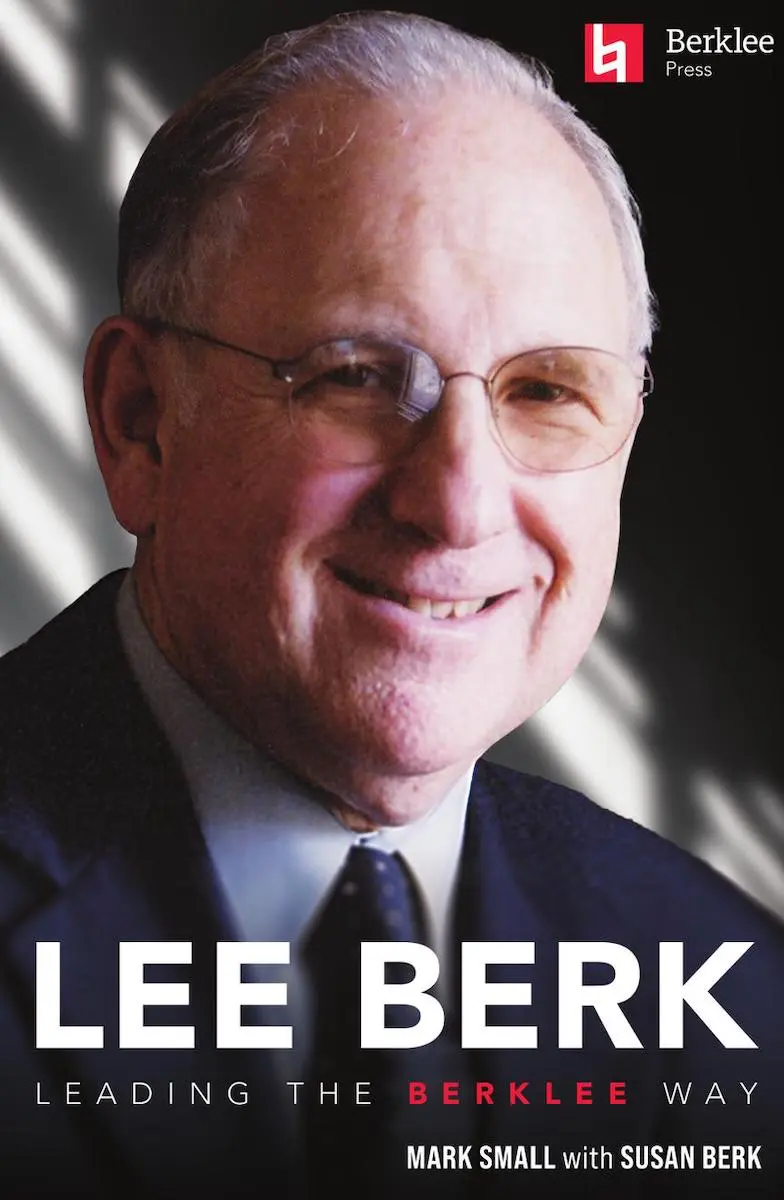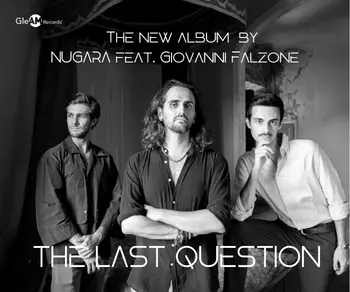
A talented musician, Lawrence Berk (1908-1995), the son of Jewish Russian immigrants, played piano professionally with various dance bands, aged just 13. He later attended MIT, graduating with a degree in architectural engineering. In the early 1940s, he became an authorised teacher of the Schillinger System developed by Joseph Schillinger, a Russian émigré and musical theory pioneer. In 1945, he purchased a three-storey building in Boston as the site for a music school and named it Schillinger House after his mentor.
Within 10 years the school had started to produce successful alumni and in 1954 received a new name, which event introduces the subject of this biography, Lawrence’s son Lee Eliot Berk (1942-2023). Lee is quoted in chapter three as saying “My father came home one evening and reported that Fred Berman (Lee’s trumpet teacher) had come into his office and said, ‘Larry, I had a dream last night that the name of the school was changed to Berklee and named after Lee.’ ‘That’s it!’ [Lawrence] said, bestowing on me in an instant a unique distinction from the time I was ten or eleven years old.” A clever reversal of Lee’s first and second names, this seemingly simple move created a name of international renown.
In 1962, the school pioneered the first college-level instrumental major in guitar and in 1966, Berklee awarded its first bachelor degree in music, moving to larger premises at 1140 Boylston Street, Boston. In 1970, it changed its name to Berklee College of Music and Duke Ellington became its first recipient of an honorary degree in 1971.
Meanwhile, Lee, who unlike his father wasn’t as musically gifted, studied first at Brown University, where after a less than happy experience he eventually graduated in 1964 with a BA in political science. He then studied law at Boston University School of Law, gaining his degree in 1967. Opting not to go into law, Lee entered the family firm, initially working as Berklee’s bursar. In 1969, he founded the first New England High School Stage Band Festival, later known as the Berklee High School Jazz Festival. He served as the college’s vice president from 1971 and as its president when Lawrence retired in 1979.
Vibraphonist Gary Burton, who started as a student at Berklee in 1960, was by 1971 a faculty member and by 1985, with encouragement from Lee, was promoted from a teacher to dean of curriculum. Burton remained a key member of the faculty for over three decades and was later executive vice-president until his retirement in 2004. In 1967 Burton hired guitarist Larry Coryell for his group and asserts that this was the real beginning of jazz-rock, two years before Miles Davis’s various fusion outfits. According to Burton, three of Lee’s major innovations were the opening up of rock music at the college, embracing music technology in the 1980s and in 2002 the launch of Berklee Online, the college’s sister virtual school.
Lee further championed the electric guitar as a principal instrument and Berklee became the first degree-awarding institution in the world to offer a course in electric bass guitar. One of its most renowned tutors was Steve Swallow, who worked in Burton’s groups for several years. Lee also supported Burton in winning over faculty members reluctant to embrace rock music as part of the curriculum.
Amongst the many achievements during his tenure as Berklee president, Lee helped to resolve a faculty strike largely through his emollient nature. As senior campus member Rob Rose recalls of the events, “It was a very difficult time and I never saw anyone manage such a tough situation with the grace that Lee showed, he would walk out of the building and people would yell at him and call him names, it was awful. He never said a bad word.”
Following Lee’s retirement from Berklee in 2004, the Berks moved first to Santa Fe, where the governor of New Mexico, Bill Richardson, invited Lee to chair the newly established New Mexico Music Commission, a post he readily accepted and held from 2005 to 2012. By that year, and mainly for health reasons, the Berks decided to move to Phoenix, Arizona where at that time the medical facilities were superior to those in New Mexico.
Author Mark Small imparts with considerable poignancy the final days of Lee Berk. Small, a trained guitarist and music journalist, was invited by Lee to play a solo guitar concert in Phoenix, and Small arrived there on Friday 20 October 2023. Having dined with Lee and Susan Berk that day and the following one, Small gave his concert recital. The day after, the Berks gave Small a lift to the airport but arriving there, he remembered that they hadn’t had a single photo of the three of them and happily the airport shuttle driver obliged. The photo, the last one ever taken of Lee, is printed on page 163. Lee died in his car later that afternoon (22 October 2023) having suffered a presumed cardiac arrest. He was 81.
In the world of jazz, Berklee remains legendary as a pioneering academic institution and as a hothouse for some of the world’s most talented musicians. In addition to Burton, alumni include John Abercrombie, Terri Lyne Carrington, Kevin Eubanks, Bill Frisell, Mike Gibbs, Julian Lage, Branford Marsalis, John Mayer, Emily Remler, John Scofield, Esperanza Spalding, Mike Stern and Steve Vai. Famous Berklee tutors include such notables as Charlie Mariano, Herb Pomeroy, Joe Lovano, Mick Goodrick and Pat Metheny. There’s also a one-page list, preceding the index, of Berklee alumni Grammy winners. It contains around 150 star names.
Such is its renown that some have come to assume that Berklee was an actual area in Boston, rather than an eponymic form drawn from its founder’s son’s name. This highly readable book highlights, in equal measure, the significance of Lee Berk as an active champion of jazz and popular music and Berklee’s standing as the ne plus ultra of jazz-focused music colleges.
Lee Berk: Leading The Berklee Way by Mark Small with Susan Berk. Berklee Press/Hal Leonard, 2025, pb, 192pp. ISBN 978-0-87639-234-8



